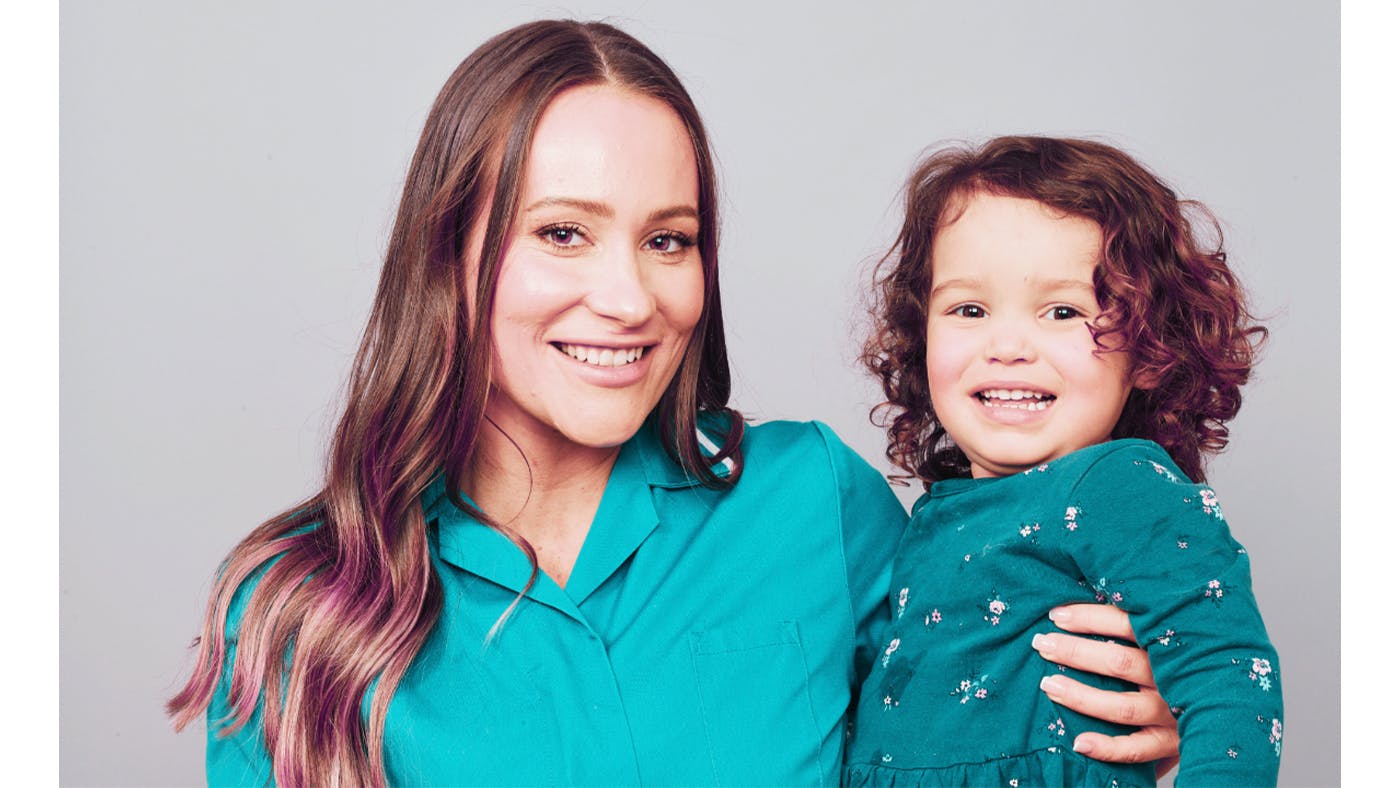
Medically Reviewed by: Midwife Marie Louise
If you've got a 10 week old baby it may feel like the weeks have both flown by but at the same time, felt like the longest weeks of your life. Your little one will have done a lot of growing in that time, and it's likely you've noticed some changes in yourself as well.
With the help of our expert, The Modern Midwife, Marie Louise, and Certified Infant and Child Sleep Coach, Jo Smith from Jo So Sleepy, we've taken a look at your baby's development milestones, what to expect in terms of their feeding, sleeping and pooing, and everything you need to know at this stage of your baby's life, including their first growth spurts and possibly a first smile!
In this article:
10 week old baby development
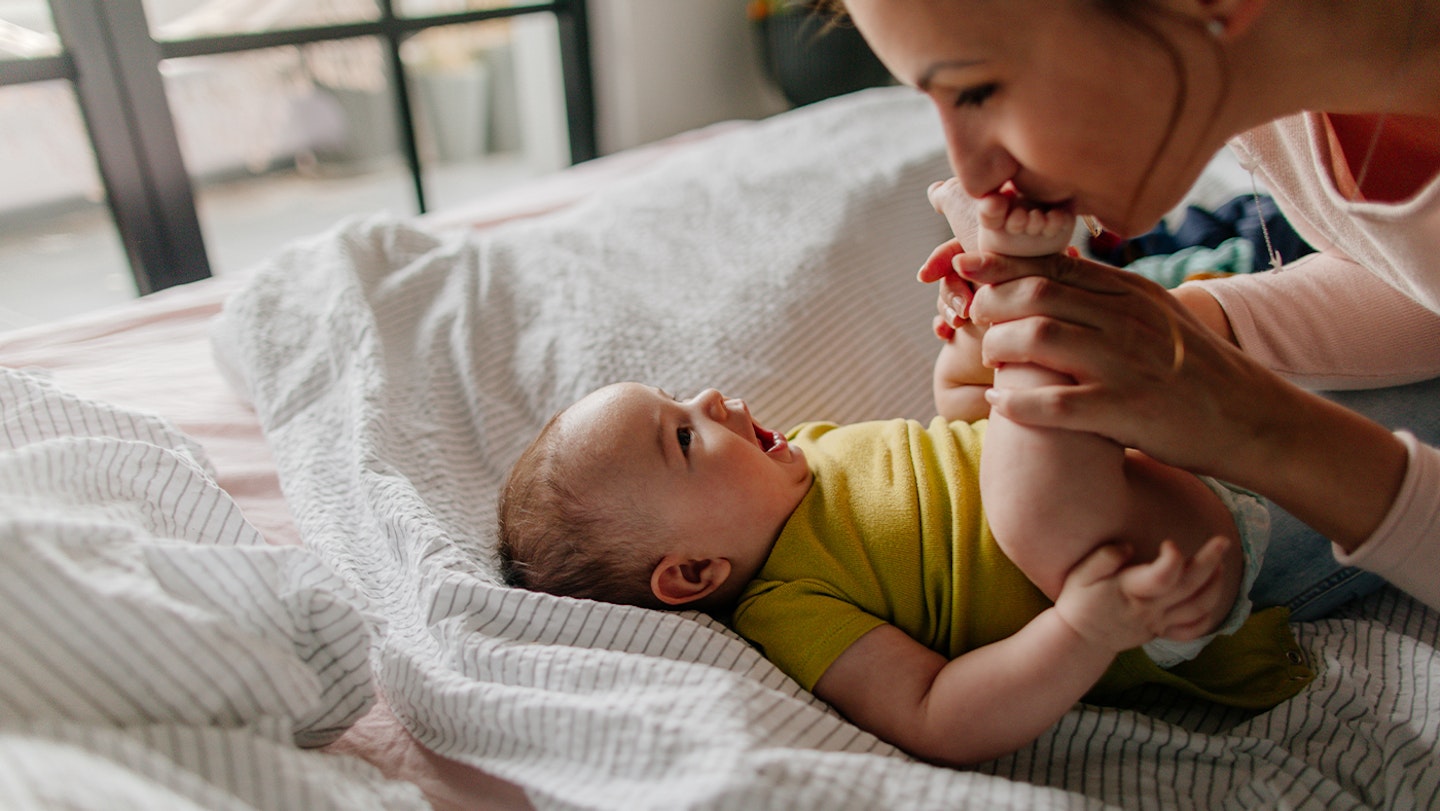
Development milestones
• Growth: By the 10-week mark, your baby is likely to have gone through a few growth spurts, growing two inches and putting on 2-3 pounds since being born. Midwife Marie says "Babies grow rapidly during this period, gaining weight and length. Regular health and development reviews with a paediatrician can ensure that the baby is meeting appropriate growth milestones".
As they’re starting to outgrow their clothes and their Moses basket, it may be time to move up a size and start looking at the best cot or crib for their next bed.
Tip: Try keeping the Moses basket inside the cot for a few nights to get your baby used to their new surroundings.
• Muscle control: Your 10 week old baby is finally realising that they can look at and touch things at the same time. That means a lot of grabbing is coming your way - you may want to remove your jewellery for a while and be careful with hot drinks.
• Head control: As your baby enters month three, they should be able to hold their head up more confidently this week than they could in week 9, although not for too long. According to Midwife Marie, the 10-week mark is all about that head control. "10-week-old babies are developing better head control, and some may start to show early signs of rolling over," she explains.
• Tummy time: To help babies develop the neck strength needed to hold their head up, you should try tummy time. Midwife Marie recommends tummy time to build their strength. "Incorporating tummy time into daily routines helps strengthen the baby's neck and upper body muscles."
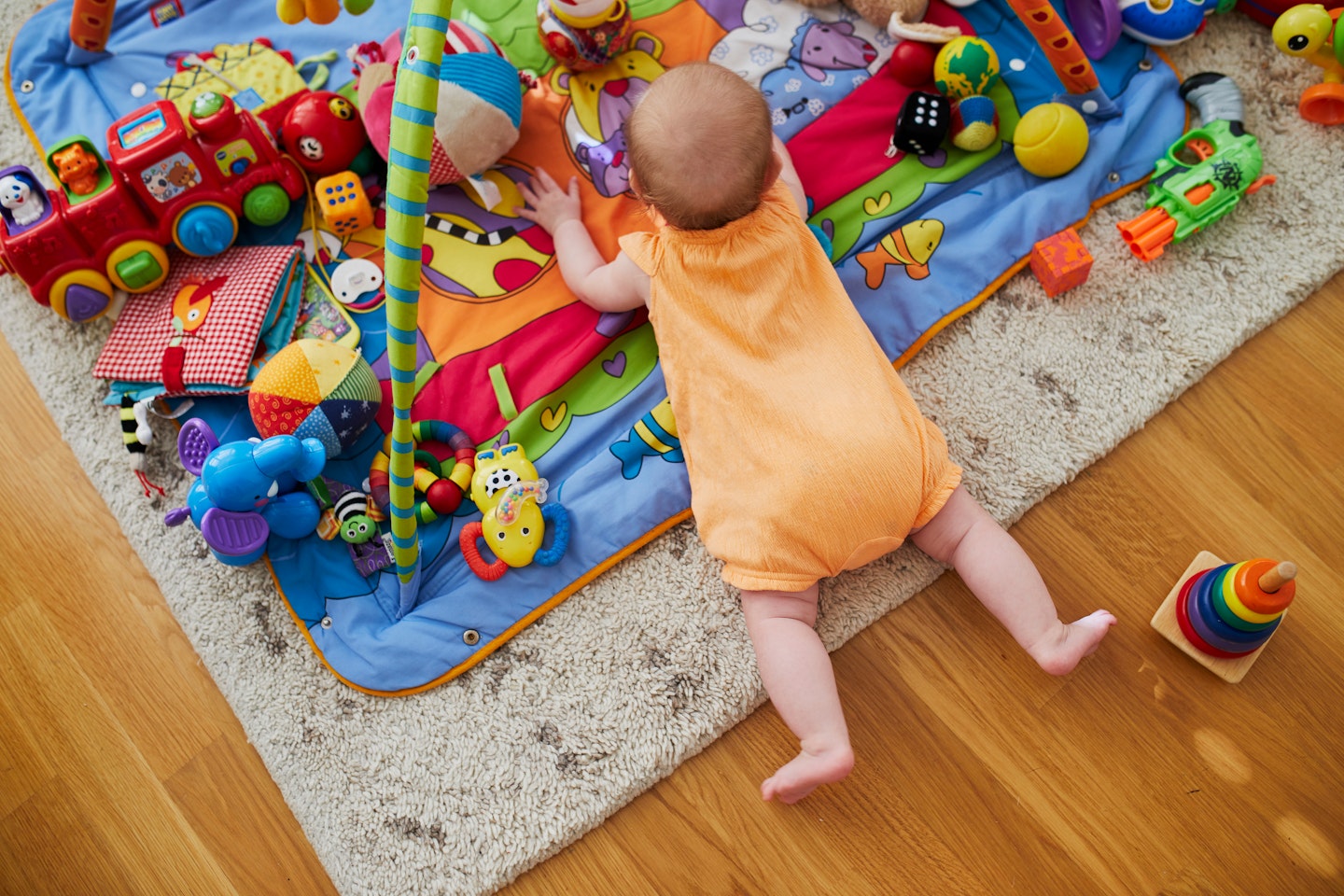
Sleep patterns and routine
At this stage, babies are just beginning to develop more consistent patterns due to the development of their circadian rhythm and natural melatonin production, but sleep is still quite variable. Both Jo Smith and Midwife Marie suggest aiming for around 14-16 hours of sleep spread across around ten hours at night and five during the day (across around three to five naps).
A lot of new parents will worry that their baby isn’t fitting into a certain sleep schedule, but remember, every baby is different and they’re still likely to wake up in the night for feeds at this age. "Babies at this stage tend to sleep for shorter periods during the day and longer stretches at night, with several naps during the day," says Marie. If you’re struggling to establish a baby sleeping routine, try not to worry – every baby will take their own time to settle into a routine.
Suggested Sleep Schedule Chart
A 10 week old baby's sleep is likely to be improving and some babies may do one 4–6 hour stretch, followed by shorter stretches after feeds. However, this will vary from baby to baby according to their own specific wake windows.
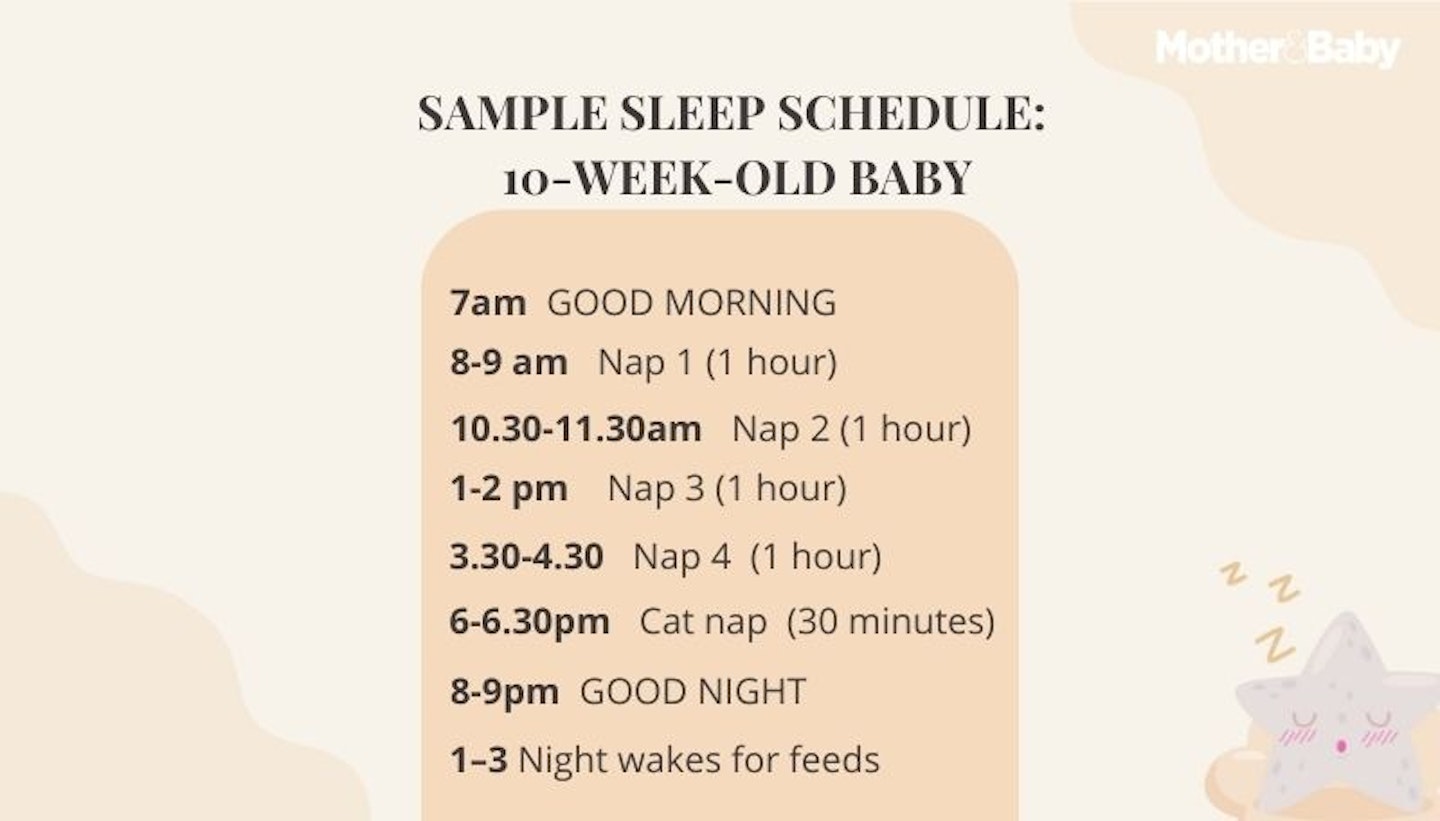
Common Sleep Challenges at 10 Weeks
Sleep coach Jo notes that parents of 10 week old babies may encounter the following sleep challenges.
Frequent waking after 30–45 minutes: This is normal due to immature sleep cycles and the lack of ability to link sleep cycles. A newborn baby’s sleep cycle is around 40- 50 minutes.
Early bedtime battles: Baby might be overtired or overstimulated.
Difficulty self-soothing: Most babies still rely heavily on rocking, feeding, or pacifiers to fall asleep.
Growth spurts or increased hunger: Around this time, a growth spurt can temporarily disrupt sleep.
Top sleep tips for a 10-week-old
1. Focus on a consistent bedtime routine:
Keep it short (10–20 min) and calming. This consistency helps baby recognise it’s time for night sleep.
2. Start the day at the same time each morning:
Even if the night was rough, try keeping to the same morning wake-up time (e.g., 7:00 AM) as this can help regulate naps and bedtime over time.
3. Use wake windows, not the clock:
Instead of sticking to a strict schedule, watch your baby’s cues and keep wake periods to about 30–90 minutes max. Every baby is unique with their own sleep needs and developmental pace, so try not to compare your little one to others. What works for one baby might not work for another.
Sensory and cognitive development
• Listening skills: "At 10 weeks, babies start to show increased awareness of their surroundings, responding to familiar voices and faces. They may also begin to track objects with their eyes," says Midwife Marie.
• Interaction: As your baby realises they can use their legs and arms to kick and punch, they’ll start to be more co-ordinated and grab at everything. This is a great time to introduce toys to help hand-eye coordination more at playtime.
Playtime is also something your baby is starting to engage with more; they will love bright colours and new sounds. Allow things to dangle on their pram or in their cot to help develop their 3D vision and encourage them to grab at them.
They’re also loving music right now and will have notably different reactions depending on what type of song you play. Keep singing to them and playing gentle lullabies followed by faster songs.
• Smile! Babies usual grace you with a first smile around the end of the second month, so with any luck you may see a grin this week or around week 11. Keep looking at them, smiling and interacting to encourage that precious first smile.
Feeding and nutrition
Feeding
Growth spurts mean one thing, a lot more food. If you’re following your baby’s lead you may find them eating more, but don’t worry about overeating as they know how much they need. 5-6 feeds over 24 hours is average at this age, but every baby is different, so there isn't a strict feeding schedule for a 10-week-old baby.
Midwife Marie explains "On average, babies at this age may feed every 2-3 hours, with each feeding lasting about 15-30 minutes."
A good guideline for feeding is 150-200ml per kilo of their weight, but continue to follow their lead if you’re breastfeeding – your baby will know best!
10 week old baby - nappies
When it comes to baby's poo, your 10 week old baby is probably filling fewer nappies than they did in the early weeks. It’s not necessarily how many times they poo that matters, but more so if it’s passed easily and your baby is not in pain. Baby's poo colour can often tell you more about what's happening inside than the number of times they go.
"Babies typically need changing every 2-3 hours, or more frequently if they have soiled their nappy" explains Marie. "Maintaining good hygiene is crucial for preventing diaper rash."
If you feel like your baby doesn’t seem to be pooing enough, or you’re worried they look uncomfortable while going, your little one might be constipated and need to see a doctor.
Your baby's health and safety
Vaccinations
You should have had your immunisation appointment at 8 weeks old, but don't worry if you’re only just fitting it in or they had to be postponed. At this 6-8 week vaccination appointment they'll have:
• First dose of the 6-in-1 injection against diphtheria, hepatitis B, tetanus, whooping cough, polio and Hib (Haemophilus influenza type B)
• Rotavirus helps protect against rotavirus, a common cause of diarrhoea and vomiting
• Meningococcal Group B helps protect against meningococcal group B bacteria that can cause serious illnesses, including meningitis and sepsis
According to the NHS Vaccination schedule, your 10 week old baby will have their next vaccinations at 12 weeks old when they'll have the second dose of the 6-in-1 vaccine, the Pneumococcal vaccine, and the second dose of the Rotavirus vaccine.
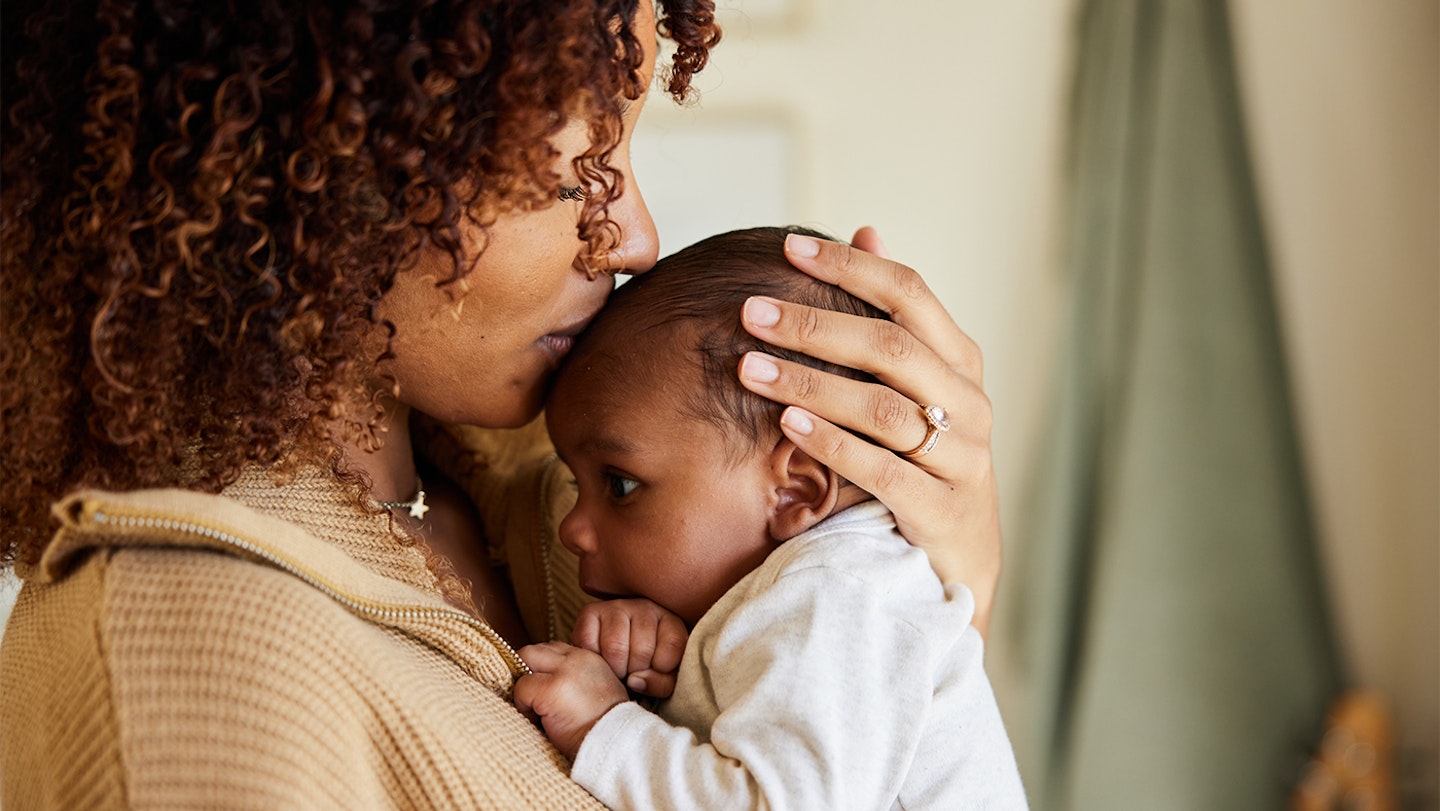
Flat Head Syndrome: If your baby is spending a lot of time on their back, they may be at risk of developing Flat Head Syndrome. The continued pressure on one spot of their head will cause a flat spot to appear. Tummy time can help with this. You can also wear your baby in a baby carrier or sling to reduce the amount of time they spend on their back, and increase bonding for the two of you.
First colds: It's likely that your 10 week old baby may get their first cough or cold soon. Unfortunately it's likely to be the first of many - keep them hydrated by feeding and if they're struggling to feed, try unblocking baby's nose. If they have a fever, wheezing, vomiting or fast breathing, it can be sign of something more serious, so call your doctor or NHS 111.
Teething: A 10 week old baby drooling can a sign of teething. They can start teething from around now so if your 10 week old baby is fussy or drooling, check their gums for signs of redness. You can give Calpol to babies over 2 months old to help with the pain if needed.
Practical parenting tips
For the past two weeks you've been looking after every need of a new (and probably quite demanding) life. But you also need to look after yourself. If your baby is exclusively breastfed it might be tricky to get some time for self care, but just an hour off can make a huge difference to your wellbeing, as can trying to spend quality time with your partner. As Midwife Marie tells us, "Parents should prioritise self-care, seek support when needed, and communicate openly about their feelings. Re-establishing a routine can provide a sense of normality for both parents and the baby".
Post-pregnancy sex: While you are obviously obsessed with your new baby, both you and your partner may be starting to miss the intimacy you used to have. There are many ways to reconnect with your partner which can also help if you're getting back into sex after birth.
Postnatal Depression: Postnatal Depression can occur at any time in the first year of your baby’s life. With one in ten women dealing with postnatal depression, you’re definitely not alone if you're experiencing feelings of guilt, anxiety, negativity or struggling to bond with your baby. It's important to seek help from your doctor so you can access the support you need.
Conclusion
As you edge closer to a 3 month mark, your little 10 week old baby is probably not so little now. They may be moving into the next band of clothes or starting to grow out of their Moses basket. An average feed schedule will be 5-6 feeds over 24 hours and they may be sleeping for around 14-16 hours spread across day and night.
They're more aware of their surroundings and can see and hear more clearly, so you may see a first smile soon. Their head control is improving, so keep doing tummy time to strengthen their neck muscles. But remember, all babies are different, so don't worry if your baby isn't hitting the same milestones as their friends or feeding and sleeping according to these averages. As long as you're both happy and healthy, they'll develop at their own pace.
FAQ's
What should a 10 week old baby be doing?
All babies develop at different paces and will hit milestones at slightly different times so don't worry if your baby isn't doing what you expect. By 10 weeks your baby may be able to lift their head during tummy time and have realised that they can use their hands to reach what they want.
Do babies get fussier at 10 weeks?
At 10 weeks your baby may be coming to the end of a second leap according to the Wonder Weeks so there's a chance they could still be a little fussy as they gain new skills.
What is a 10 week old baby's routine?
A 10 week old baby's routine will largely revolve around sleeping and feeding but now they're starting to be more aware of the world around them it's a great time to build in activities like tummy time and baby classes while they are awake.
About the experts
Marie Louise, AKA the Modern Midwife is a qualified midwife of twelve years, a mother of two, and an author. Marie also works in partnership with leading baby product manufacturer, MAM. She is dedicated to supporting parents in navigating their parenthood journey with her range of online courses and books, whilst breaking down scientific data into a digestible form for everyone to understand.
Founder of Jo So Sleepy Jo Smith, is a certified sleep coach and a proud mum of three wonderful girls. Her journey into sleep coaching began from her own experience as a sleep-deprived mother, navigating the challenges of sleepless nights and the quest for restful sleep. After using a sleep coach herself, which she found to be life-changing, she recognised the profound impact that proper sleep support can have on families.
About the author
Lorna White is the Products Editor for Mother&Baby. After running the Yours magazine website, specialising in content about caring for kids and grandchildren, Lorna brought her expertise to Mother&Baby in 2020. She has a keen interest in a range of topics from potty training and nutrition to baby names and early development and has a wide range of experienced medical experts and professionals at her fingertips. In her spare time, she enjoys spending time with her two young sisters, dog walking and enjoying the outdoors with her family.
